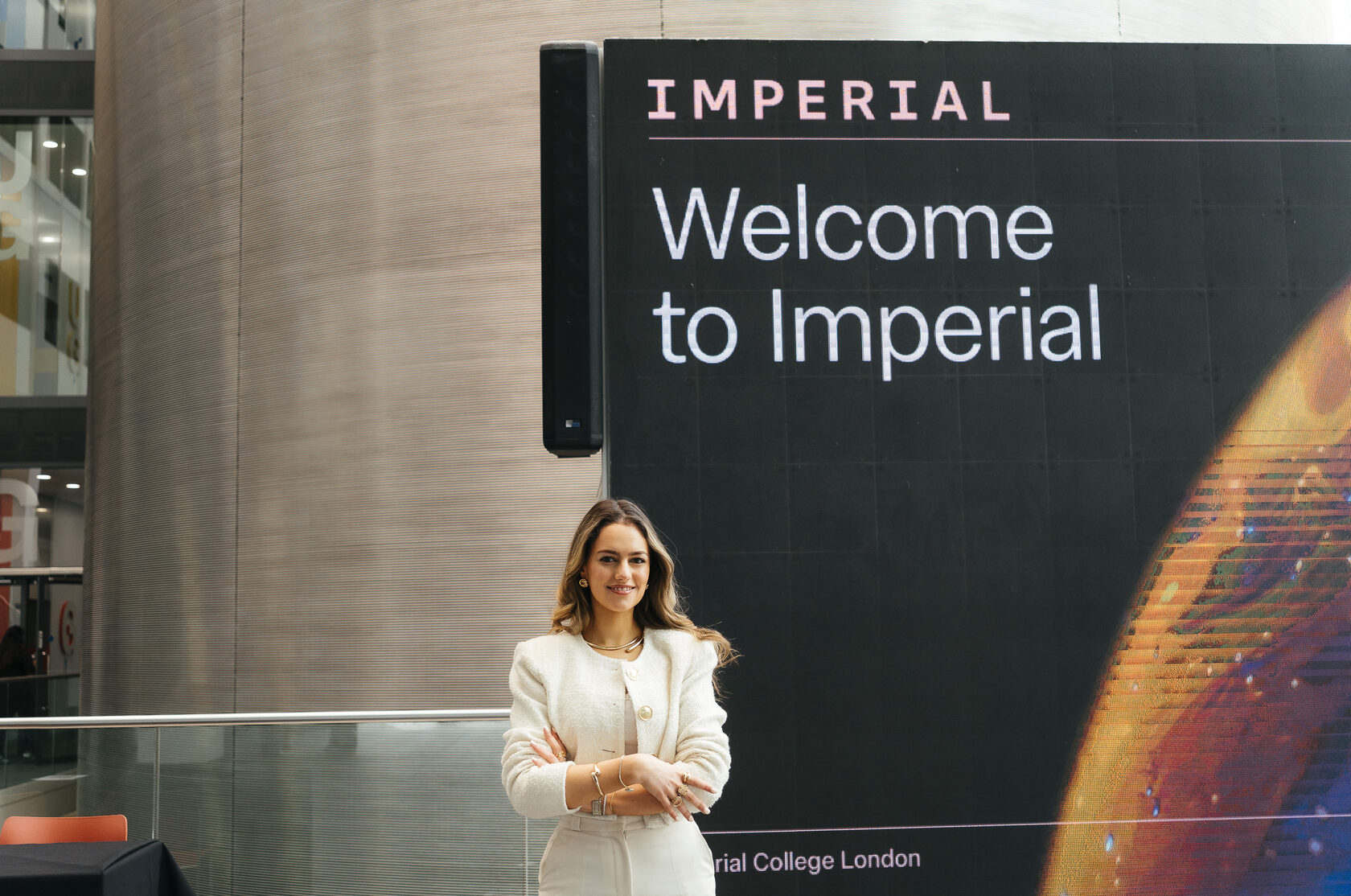Imperial College London has always been a standout — a powerhouse in science, engineering, and innovation. But this year, something shifted. In the QS World University Rankings 2025, Imperial was ranked 2nd in the world, just after MIT — surpassing not only Oxford and Cambridge, but also Harvard.
It’s a bold statement. One that signals not just academic excellence, but a new kind of energy coming from within its walls. I’ve spent over a decade surrounded by some of the most driven young people across global campuses — especially within Oxford and Cambridge networks — and this moment made me curious: Who at Imperial is capturing that rise? Who is shaping what this next chapter looks like?
Every answer pointed in one direction: Rebecca Fayad.
At just 20 years old, she’s President of both the Imperial Investment Society and Imperial Entrepreneurs, two of the most active and influential student-led platforms on campus. She’s crafting a whole new definition of what it means to lead—fearlessly, curiously, and unapologetically.
What struck me most wasn’t just her résumé. It was her clarity. Her humility. Her drive. The way she speaks about fear of wasted potential like it’s a ticking clock behind every choice. And how she channels that urgency not into pressure, but into progress — for herself, and for everyone around her.
This interview is a window into what’s happening at one of the world’s fastest-rising universities — and into the mindset of a young leader shaping the future in real time.
Let’s dive in.
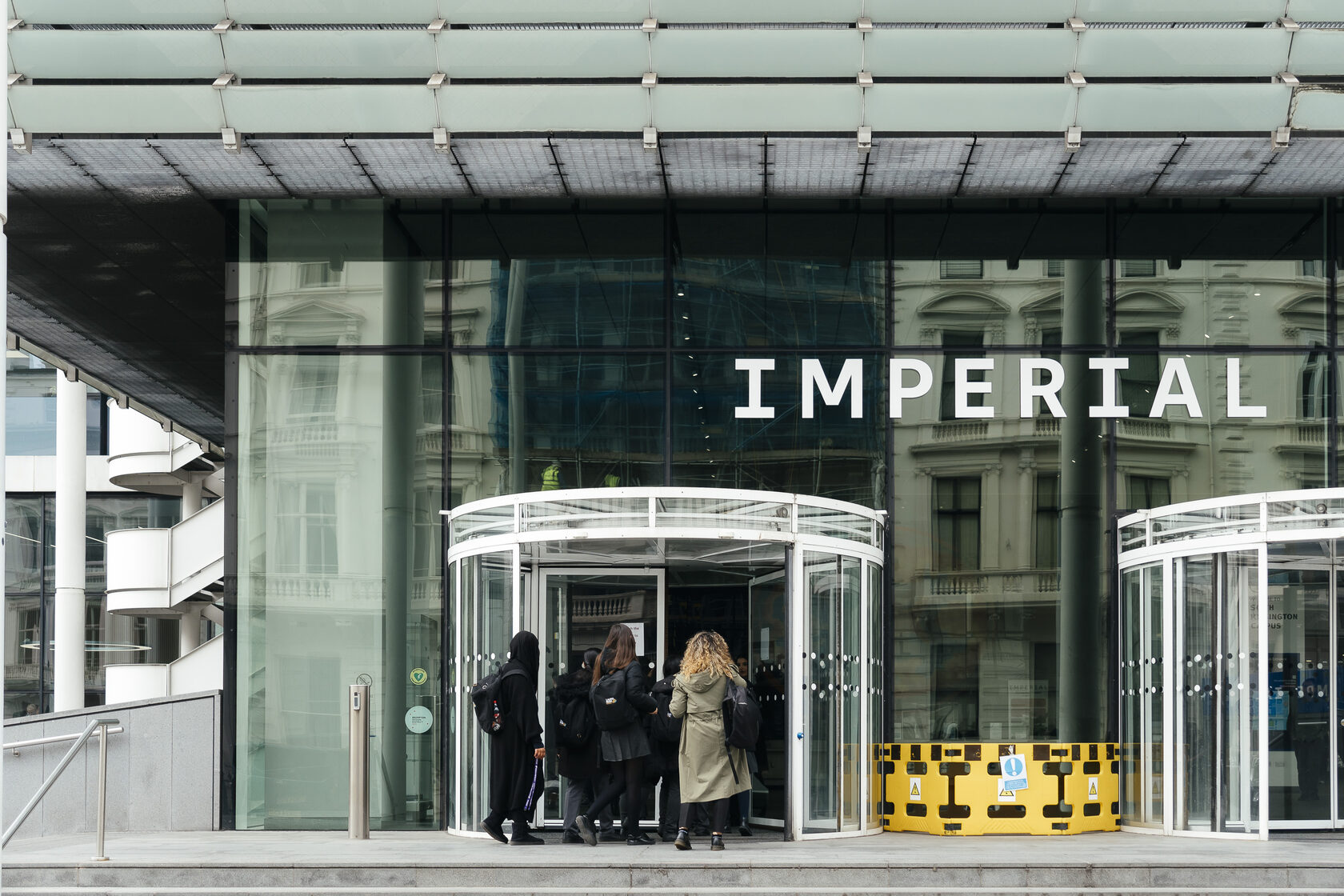
You wear many hats — president, founder, speaker, strategist. Where does your drive come from? Was there a defining moment early on that sparked it?
I think I’ve always been wired to chase potential. But if I had to trace it back, it probably started in school. I grew up between Lebanon and Dubai, and for my last six years of high school, I went to a British school in Dubai. I was the only girl in my maths and physics classes — literally the only one. But I never felt like I didn’t belong, which is rare. The school really pushed me forward. They made it clear: you have a seat here. I know that’s not the experience a lot of my female friends had. In their schools, teachers often assumed the boys were the ‘natural’ science students. I was lucky — I had people who believed in me early on.
That said, the real fuel came from home. My mom is a force of nature. She’s a UN consultant and a founder. My grandma was the first female head nurse in one of the biggest hospitals in Lebanon. So I grew up around women who didn’t just talk about impact — they did things. There was this unspoken mantra in the house: women do it better. That kind of energy changes you. It sets your standard.
But if I’m being honest, it’s not just ambition that drives me — it’s fear. I have this deep fear of wasted potential. Imagine getting to the end of your life and seeing two versions of it: the one you lived, and the one you could have lived. That image terrifies me. So I wake up every day with this internal clock ticking. Let’s not waste time. Let’s build.
You’re deeply involved in both investing and entrepreneurship. How did that begin for you? Were those always parallel passions, or did one lead to the other?
They’ve always been kind of twin threads. When I applied to university, I was torn between studying PPE and chemical engineering. On the one hand, I loved politics and economics. On the other, I was fascinated by science and systems. I kept my options open, and Imperial felt like the right place to explore both.
The moment I arrived, I went all in. I joined around a hundred societies — not kidding. There are about 250, and I signed up for nearly half. Everything from origami and fencing to jazz, engineering, investment, and entrepreneurship. I was going to events every single day — sometimes two or three a day. That exposure was everything. I got to learn, connect, build. I realized that investment banking was this incredible window into the world, and that entrepreneurship wasn’t something new — it was something I’d already been doing. I started my first mini business when I was 12, selling handmade bracelets for charity. It wasn’t huge, but it sparked something. I liked the feeling of starting something from scratch and seeing it matter, even in a small way.
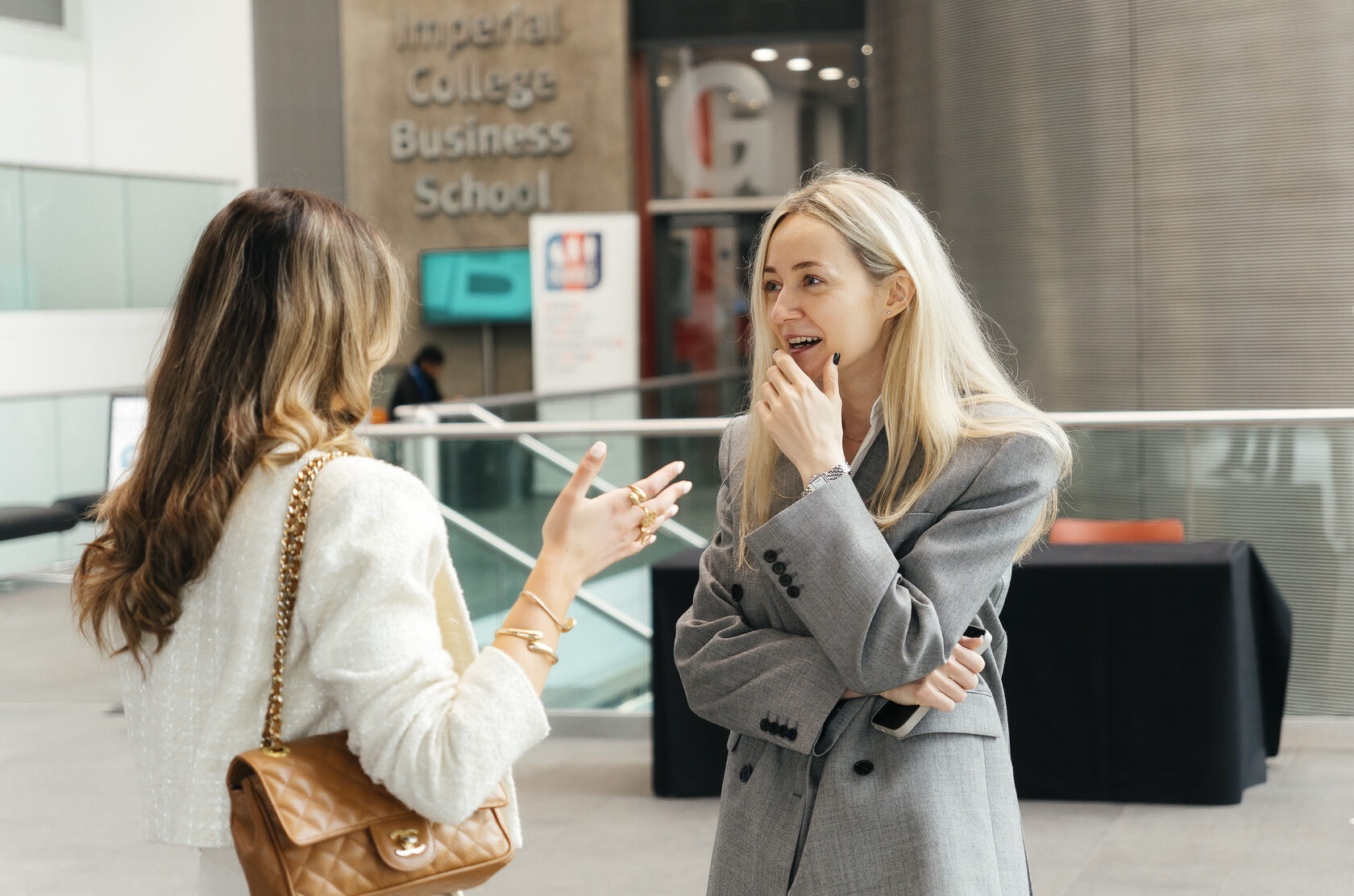
When people meet you today, they see the titles. What’s something they don’t see — something behind the scenes — that’s key to who you are?
They probably don’t see how much of an artist I am. I’ve always had this creative side — I play piano, I paint, I draw. My grandma was a painter too, so it runs in the family. When I was younger, I played in an orchestra made up entirely of professionals. I was the only student, playing all the quirky percussion sounds — triangle, banjo, whatever was needed. That creative rhythm still anchors me. When my schedule’s packed and I’ve been in meetings or events all day, that’s what I turn to. Drawing, music, a bachata session with my friends, catching-up with family - those things keep me human.
You’re currently president of both the Imperial Investment Society and Imperial Entrepreneurs — two of the biggest societies on campus. That’s a lot of leadership. How did that happen, and how do you manage it without burning out?
Funny thing is, I never planned it. I wasn’t even part of the committee before. The then-president of the Investment Society had seen me around — at events, asking questions, engaging — and reached out to say, “I’ve noticed you. I think you should run.” I applied two days before the deadline and ended up winning. On the entrepreneurship side, I initially ran with a friend of mine, Jared, as co-presidents. But halfway through, he shifted to lead Neurotech, and I ended up taking the reins solo.
And yes, it sounds wild — running two big societies at the same time — but there’s a surprising amount of overlap. We coordinate on events, marketing, even ticketing systems. That synergy makes it doable.
In terms of energy? I’m just not someone who gets drained by people. I love meetings. I love the chaos of a packed schedule. Breakfast catch-ups, lectures, admin, then evening events — it fills me up. And when I need to reset, I play piano, I go for rooftop drinks with friends, even shopping! People are where I get my energy from.
You lead big teams. What’s something you’ve learned about leadership that no textbook could’ve taught you?
That leadership isn’t about being at the top. It’s about being at the bottom. I always describe it as an inverted triangle. You’re there to support everyone else, not the other way around. And that changes how you show up.
Whenever someone joins one of my teams, I sit them down and ask them one thing: What do you want to get out of this — selfishly? If it’s a CV line, great. If it’s experience, even better. If it’s just to make friends, that’s valid too. Whatever it is, I want to make sure they leave feeling like they got it. If they put in the hours, they should benefit from it.
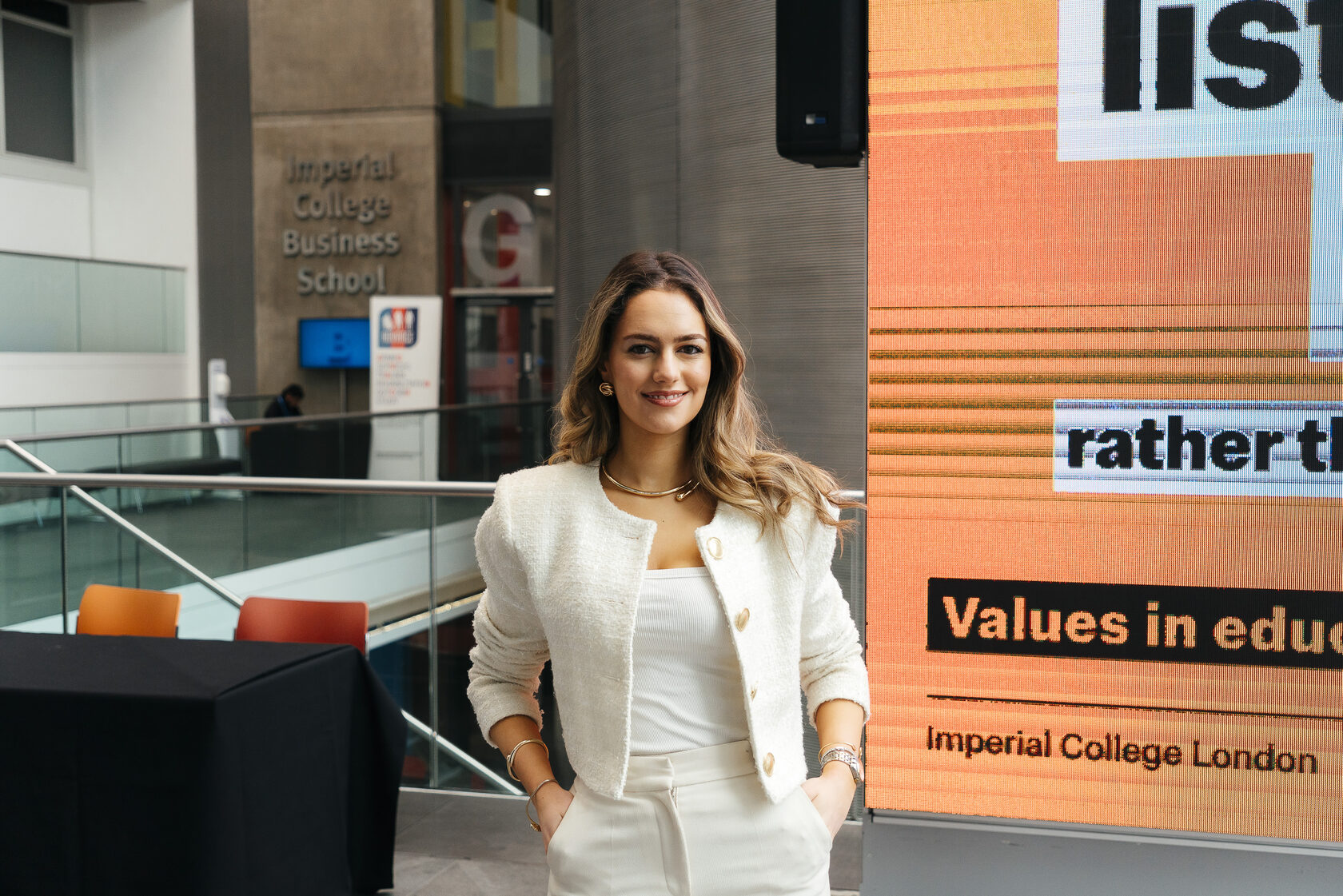
You’re leading teams of students who volunteer their time. What keeps them engaged — and what does “good leadership” mean to you in that context?
No one in our societies is paid. Yet some people are giving five, six hours a week. That means the culture has to matter. People show up because it’s fun, because it feels like family, because they know their effort is seen. I celebrate people’s wins. I give credit publicly. And I try to make sure the vibe is always collaborative — not competitive.
You work across disciplines. How do you build collaboration between students with really different backgrounds — say, a finance student and an engineer?
It starts with designing the right kind of spaces. Every event we run is intentionally multidisciplinary. So a finance major might hear from a founder who built a biotech company, and an engineer might learn how to pitch or market an idea. At Imperial, the beauty is in the cross-pollination. No one stays in their silo — at least not if I can help it.
You’ve spoken on big stages — TED-Ed, WEF Global Shapers. Do you see public speaking and communication as part of your leadership?
Absolutely. Communication is leadership. The TED-Ed talk I gave was about curiosity — how we go from asking 200 questions a day at age six to barely any by the time we’re eleven. That still haunts me. Curiosity is the fuel. It’s how we innovate, how we connect.
I also ran my school’s TEDx event and trained twelve other students to speak. The theme I picked was “Passion into Action” — because that’s what I believe in. Ideas are beautiful, but they mean nothing unless you build something with them.
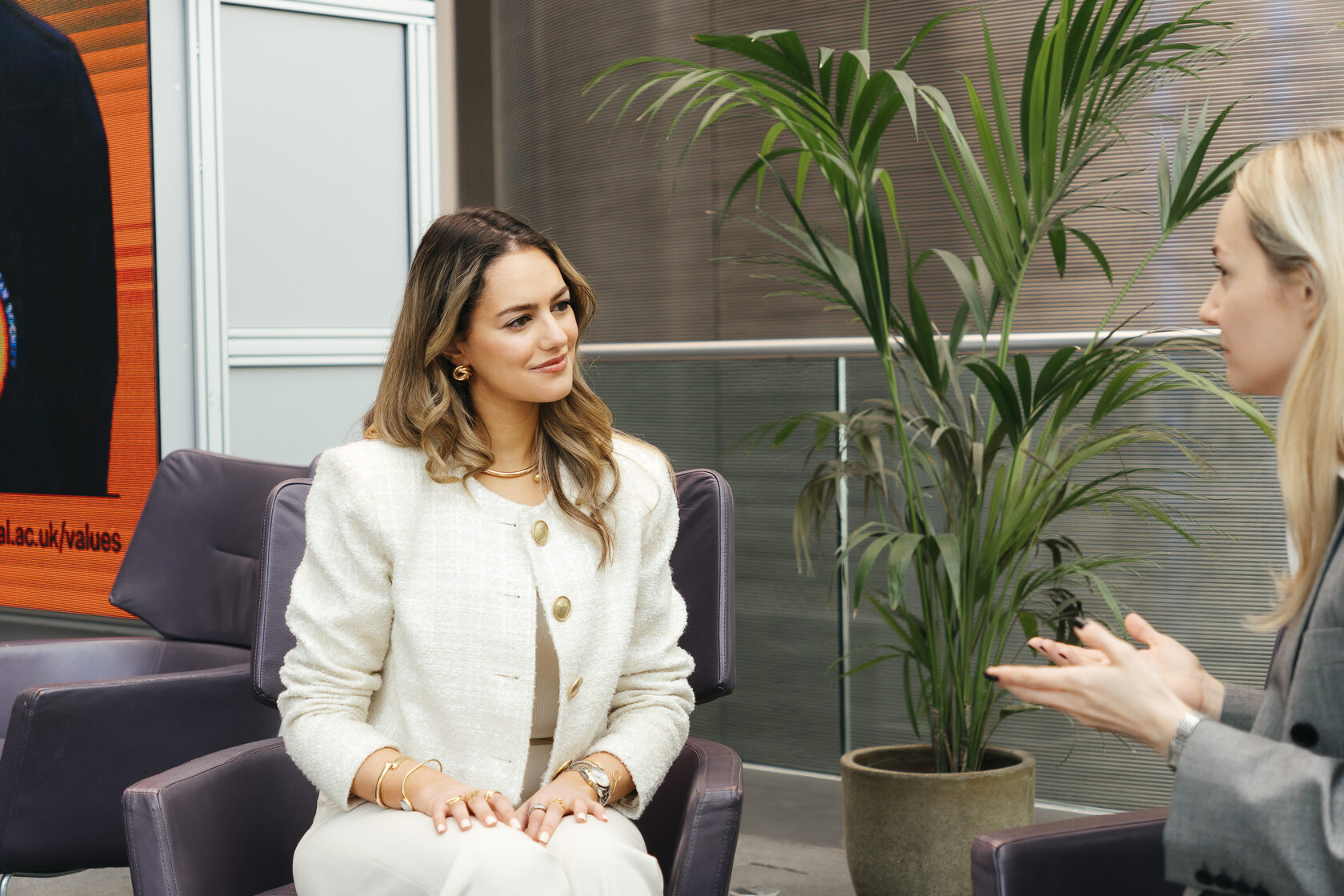
What makes a message powerful today — in a world where everyone’s talking?
Authenticity, always. People can tell if you're saying something because you believe it versus saying it because you’re expected to. And consistency. If you show up once, people might notice. If you show up every time, people start to trust you.
With so much visibility, do you ever feel pressure to be perfect? How do you stay grounded?
Of course. I feel that pressure all the time. But I remind myself: I’m human. I’m allowed to be messy. Some days I wake up at noon. Some days I skip class. It’s not about being perfect. It’s about being real. And honestly, calling my mom every day helps more than anything. She reminds me who I am beyond the titles.
You’re fast becoming the kind of person younger students look up to. Who did you look up to when you started out — and what stuck with you from their example?
Definitely my mom and my grandma. They’re the blueprint. Both are fierce, accomplished, compassionate women. I also had a business teacher in school who really saw me. She once told me, “You’re 12 now, but in ten or twenty years, you’ll have your own company.” That stuck. It planted the seed.
My grandpa has also been a great inspiration, especially to be curious, ask questions, and aim to be the most knowledgeable person in the room. I am a mosaic of the people around me!
If a first-year student approached you and said, “I want to do what you’re doing — but I don’t know where to start,” what would you tell them?
Start by saying yes. You don’t have to have a five-year plan. You don’t even have to know if something is right for you. Just try. Say yes, show up, test things. If it doesn’t fit, drop it and pivot. But momentum matters more than perfection.

A lot of students don’t feel “naturally” confident. What’s your advice to them?
Confidence isn’t a prerequisite — it’s a result. You gain confidence through doing. If you feel like you don’t belong in the room, that’s fine. Sit in the room anyway. Eventually, you’ll realize you’ve earned your seat.
You’re deeply engaged with both investing and innovation. What do you see changing about the world of work for Gen Z — especially in the next five to ten years?
The barriers are basically gone. With AI, the tools are right there. You want to code? You can. You want to learn how to model, design, build, analyze? ChatGPT, YouTube, open-source everything — it’s all at your fingertips. The challenge now isn’t access. It’s focus.
That’s why I deleted TikTok. Deleted Instagram. There’s just too much noise. You can be the smartest person in the room, but if your attention’s split across twenty tabs and three apps, you’re not going to get far. The future belongs to the people who can focus, stay proactive, and stay humble. And that last one matters — because honestly, Gen Z can get a bit entitled. We think we’re owed shortcuts because we’ve grown up with speed. But you can’t skip the grind. You still have to earn your way up.
What makes a student leader in 2025 different from one in 2005? Has the job changed — or just the mindset?
In 2005, leadership was about structure. You followed a roadmap, you climbed a ladder. Today, in 2025, it’s all about initiative. No one waits to be picked anymore. We don’t need permission. We start things. Launch projects. Build movements. We lead from where we are.
The other big shift? Visibility. Social media, LinkedIn, podcasts — we’re not just leading inside rooms anymore. We’re leading in public. That adds pressure, sure. But it also creates massive opportunities to influence, connect, and collaborate across borders.
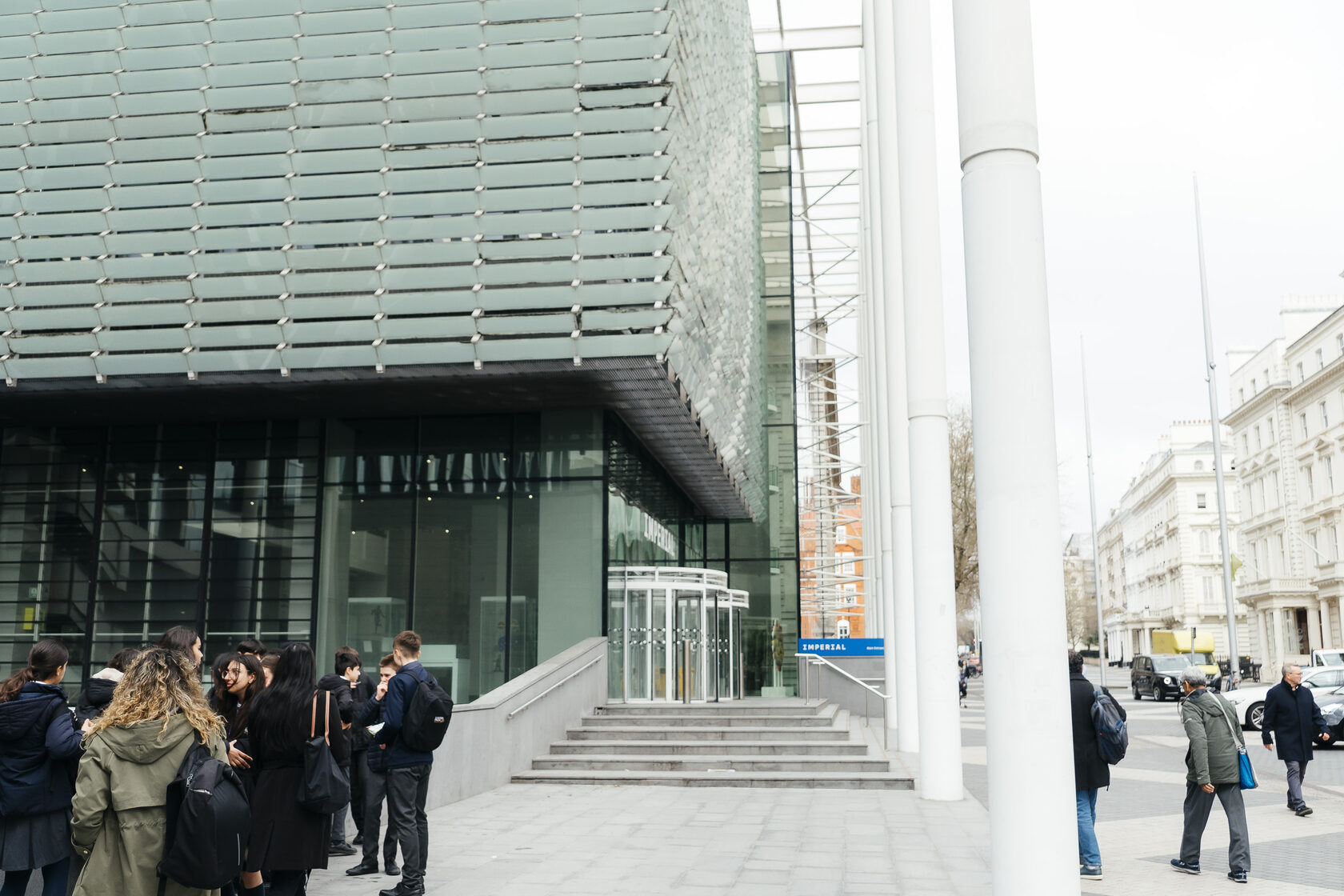
If you could redesign the university experience to better prepare students for that future, what would you change?
I’d make societies mandatory. I genuinely believe that’s where the real education happens. Courses give you knowledge — but societies give you practice. You learn how to lead, how to fail, how to build something from scratch. You learn how to work with people who don’t think like you. That’s what prepares you for the world. Not a lecture slide.
You’ve already founded ventures while still in university. What’s something people misunderstand about starting things young?
That it has to be big. Everyone thinks launching something means raising millions or going viral. But my first startup was when I was 12. We made and sold bracelets, then donated the money to charity. That was it. Tiny. But it mattered. It taught me how to organize, how to pitch, how to sell. It gave me a story. And that story gave me confidence.
Starting small is underrated. It’s how you build the muscle.
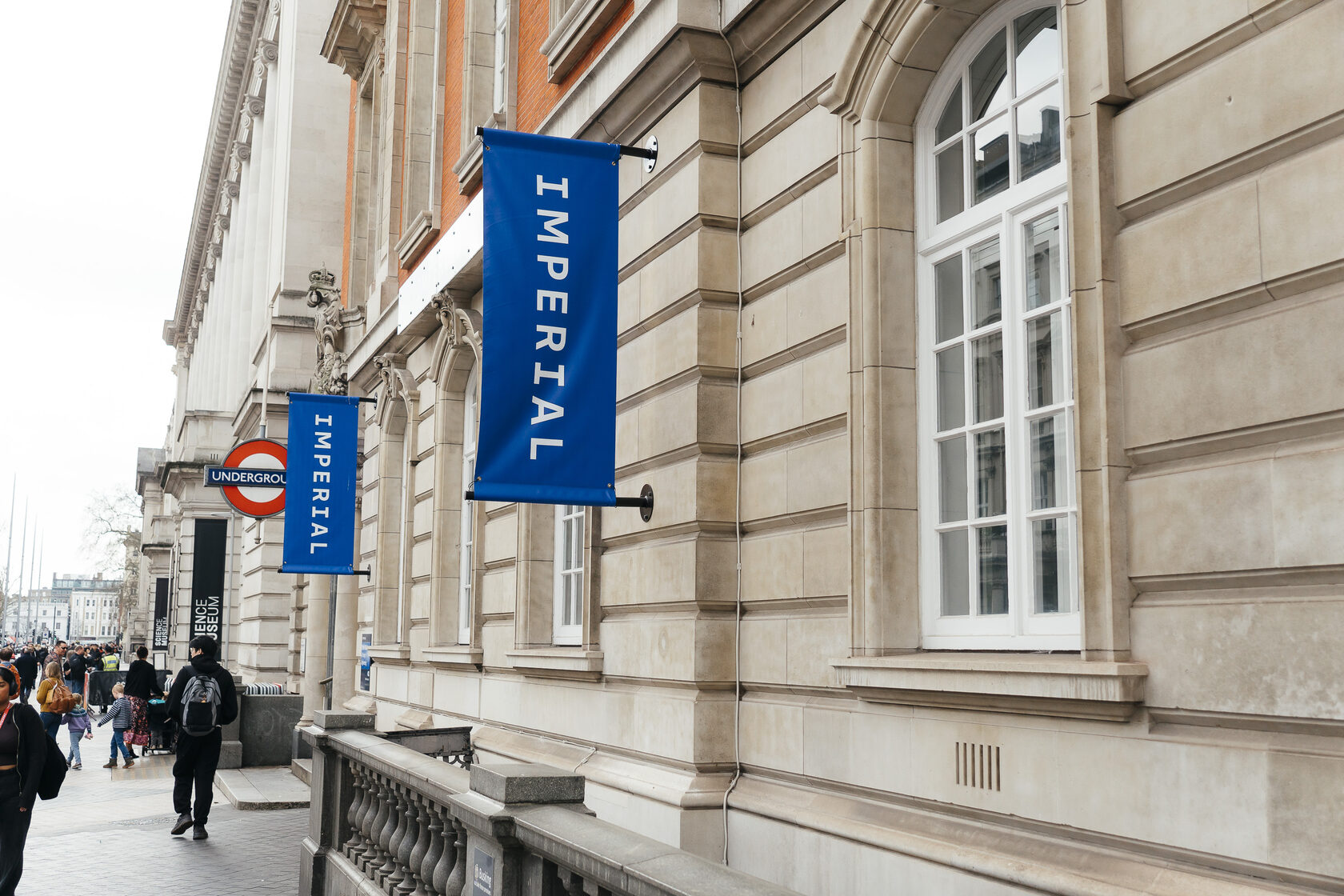
What excites you most right now — a project, an idea, a space you want to explore more deeply?
Energy. I want to build something in the energy space. That’s what chemical engineering is all about — energy, systems, transformation. But it’s also a massively male-dominated field. I’ve sat in rooms where I’m the only woman. That excites me. I want to change that.
I’ve been toying with the idea of doing a PhD — not just to specialize, but to break into that space on a deeper level. Long term, I want to launch something that really moves the needle in energy innovation.
Are there any early failures or pivots in your journey that taught you lessons you still rely on?
Absolutely. My second startup was an ed-tech NGO aimed at underprivileged communities. It had heart, and we were so passionate about it, but it didn’t scale. We hit infrastructure issues, timing issues — you name it. But honestly? That project taught me more than any internship ever could. Starting something — even something that doesn’t “work” — teaches you 100 times more than reading about it. Later, with the help of an incredible team, we were able to scale it back up into an exclusive project—smaller in scope, but far more focused and impactful. That experience taught me how to adapt, pivot, and rebuild with purpose.
When you’re not leading societies or speaking on stages, how do you recharge? What keeps you human behind the high performance?
Jazz concerts. Drawing. Playing piano. Pilates. Girl brunches. And calling my mom — every single day. That’s not an exaggeration. My mom and I talk about everything. She keeps me honest, and she’s always the first one to remind me: You’re doing enough. You’re allowed to rest.
I have a lot of energy, but I also know when I need to step back. Creative time — even just sketching for 30 minutes — resets my brain in a way that no productivity hack ever could.
What’s something playful, silly, or surprising about you that people wouldn’t expect?
I’m never not in heels. I show up to engineering classes in dresses, in full glam. And I do it intentionally. Because I refuse to believe you need to look like a man to be taken seriously in technical spaces. If I succeed by pretending to be someone else, I’m defeating the point. So I wear what I want — and I show up fully as myself.

Do you have any rituals — daily or otherwise — that help you stay sharp and centered?
I stack my days. Mornings are for meetings. Midday is for studying or admin. Evenings are for events or society work. I don’t have a PA — yet — so I block out time every afternoon just for catching up on emails, scheduling, logistics. It sounds small, but that discipline is what lets the rest of the chaos work.
And I always protect the non-negotiables: creative time, family time, alone time. That’s how I stay steady.
You’ve done a lot already — and it feels like you’re still just getting started. What’s next for you?
This summer, I’m doing an investment banking internship. After that? Maybe I do a PhD. Maybe I launch a startup. Maybe both. I’m keeping the path open — but whatever it is, it’ll involve building something with real impact. I’m not here to just climb ladders. I want to redesign them.
What’s a quote, motto, or mental reminder you return to when things get hard?
Is this going to matter in five years? That’s my anchor question. It helps me zoom out. It helps me drop the noise and focus on what actually counts. Long-term over short-term — always.
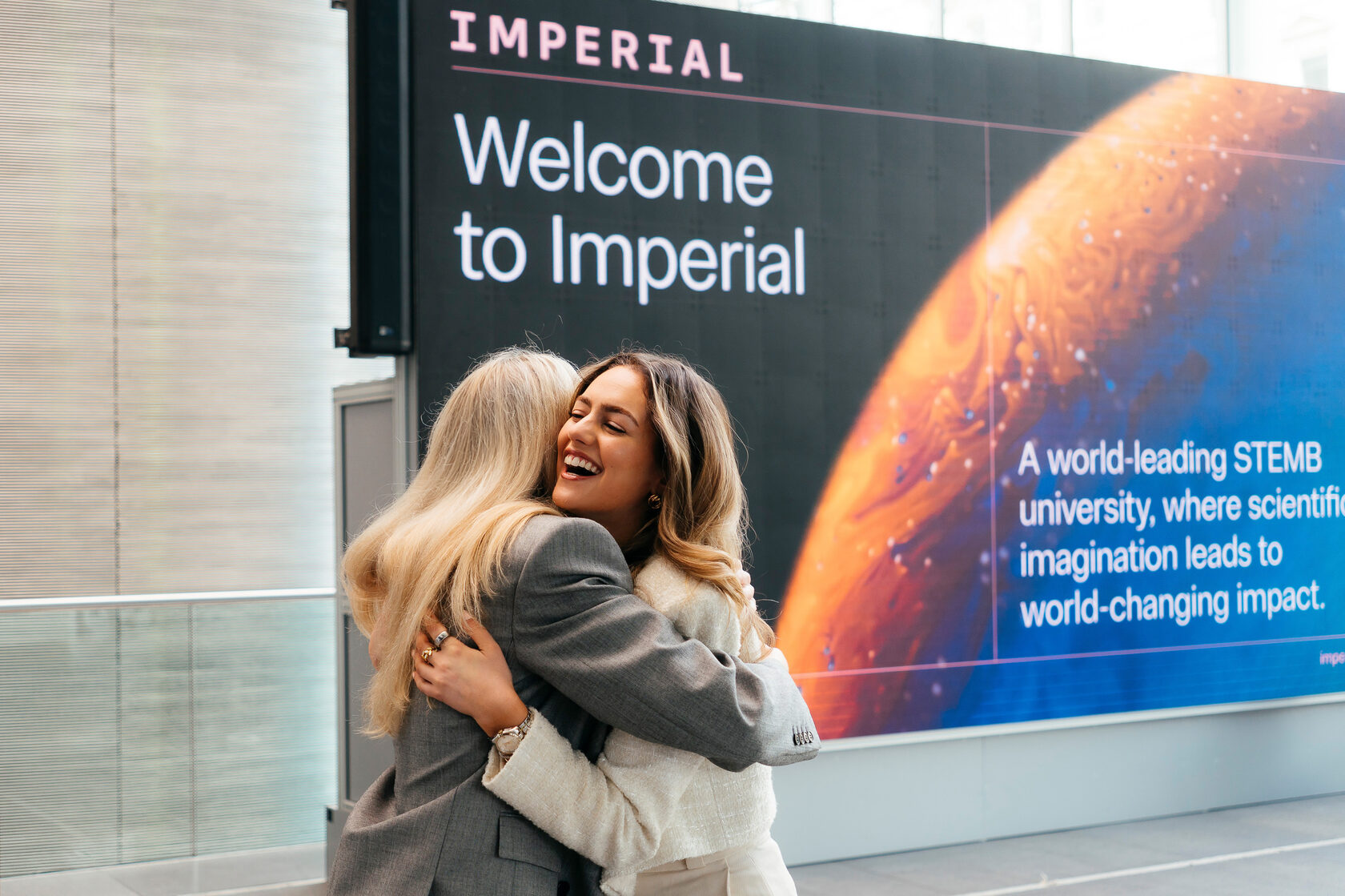
Finally: If you had the attention of every ambitious student in the world for one minute, what would you say to them?
Say yes. Say yes before you feel ready. Say yes before you think you belong. Just step into the room. You’ll grow into it. That’s how every great story starts.
Photos: Elena Zhiltcova



